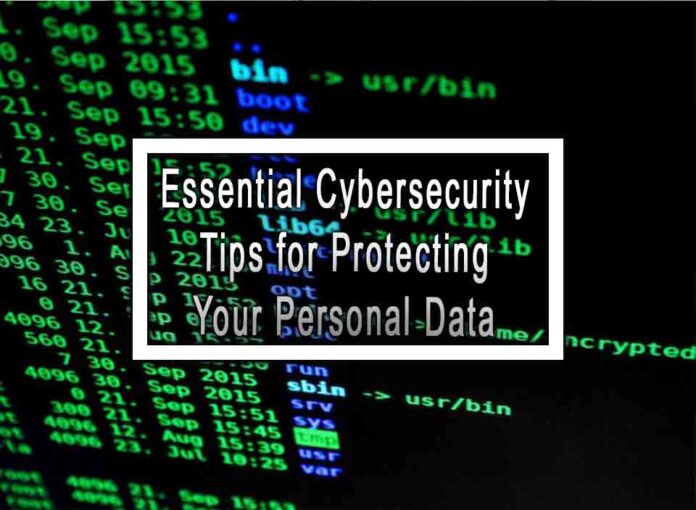Protecting your personal data is crucial in the digital age, where cyber threats are ever-present. Implementing cybersecurity best practices can help safeguard your sensitive information. Here are essential cybersecurity tips for protecting your personal data:
1. Use Strong and Unique Passwords:
Create strong and complex passwords for all your accounts, including a mix of upper and lower case letters, numbers, and special characters. Avoid using common passwords or repeating them across multiple accounts. Consider using a reputable password manager to generate and securely store your passwords.
2. Enable Two-Factor Authentication (2FA):
Enable two-factor authentication whenever possible. 2FA adds an extra layer of security by requiring an additional verification step, such as a one-time code sent to your phone, in addition to your password.
3. Keep Software and Devices Updated:
Regularly update your operating system, software applications, and mobile devices to ensure you have the latest security patches. Cyber attackers often exploit vulnerabilities in outdated software.

4. Be Cautious with Email:
Be wary of phishing emails, which attempt to trick you into revealing sensitive information or clicking on malicious links. Avoid opening attachments or clicking on links from unknown or suspicious sources. Verify the sender’s email address and look for signs of phishing, such as misspellings or unusual requests.
5. Use Secure Wi-Fi Networks:
Avoid using public or unsecured Wi-Fi networks for sensitive activities like online banking or accessing personal accounts. Use a virtual private network (VPN) when connecting to public Wi-Fi to encrypt your data and protect it from potential eavesdroppers.
6. Be Mindful of Social Media Sharing:
Be cautious about the information you share on social media platforms. Avoid posting sensitive personal details like your full address, phone number, or travel plans, as this information can be exploited by cybercriminals.
7. Regularly Back Up Your Data:
Regularly back up your important data to an external hard drive or a secure cloud storage service. In the event of data loss due to cyber threats or hardware failure, having backups will ensure you can recover your important files.
8. Be Skeptical of Unsolicited Requests:
Be skeptical of unsolicited phone calls, text messages, or emails asking for personal information or payment details. Legitimate organizations will not request sensitive information in this manner.
9. Use Secure Websites for Online Transactions:
Only enter personal and financial information on secure websites with “https://” in the URL and a padlock icon in the address bar. Avoid entering sensitive information on websites with unencrypted connections.
10. Educate Yourself and Stay Informed:
Stay informed about the latest cybersecurity threats and best practices. Continuously educate yourself about cybersecurity risks and follow updates from reputable sources to protect your personal data effectively.
By implementing these cybersecurity tips, you can enhance the security of your personal data and reduce the risk of falling victim to cyber threats. Remember that staying vigilant and proactive is essential for safeguarding your digital assets in today’s interconnected world.











